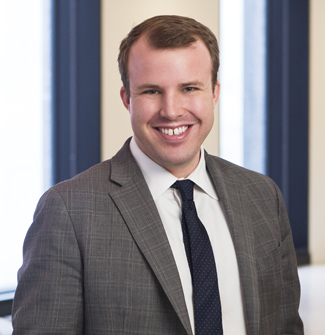Tom Kidera guides clients through crisis. A Chambers-ranked litigator (General Commercial Litigation, New York (Band 6)), Tom brings a dogged dedication and creative energy to his clients and their needs. His clients attest that he applies "a real cerebral approach to whatever it is we're trying to accomplish," and that "you can tell he has gone down all the potential paths and thought through them."
A partner in the firm's Complex Litigation and Dispute Resolution group, and the Head of Orrick's New York Office, Tom represents the Firm's energy and infrastructure, financial services, and professional services clients in complex commercial litigations, arbitrations, and regulatory proceedings.
He is particularly sought-after on issues regarding force majeure and catastrophic market disruption, having served on a team of Orrick lawyers whose force majeure-related victory on behalf of long-time client, Hemlock Semiconductor LLC, was declared a Top 10 Business Case of 2010-2019 by the Michigan Bar Journal.
Tom represents Orrick's renewable energy and infrastructure clients in a vast array of commercial, warranty, and construction litigation matters throughout the U.S. and around the globe, previously having served as a member of the Orrick team that represented Hemlock Semiconductor (a leading producer of solar-grade polycrystalline silicon) in a host of litigations and proceedings arising from the breach of its long-term supply agreements by counterparties. His practice touches all types of renewable energy disputes from PPA litigation, to development and construction claims, to component supply and performance disputes, and everything in between.
In addition to representing his clients in courts and confidential arbitrations, Tom regularly provides pre-litigation counseling to Orrick's renewable energy and infrastructure clients, helping them manage their enterprise liability and pursue and defend claims through mediation and pre-dispute procedures, often resolving matters amicably before they devolve into full litigation or arbitration.
Tom also has litigated structured finance issues for his entire career, representing securitization sponsors and loan servicers in an array of litigations from securities fraud and loan repurchase disputes to ERISA and consumer class actions, also consulting and advising on the interpretation of securitization documents and events of default.
In addition, Tom represents audit firms and accountants in regulatory proceedings commenced by the SEC and the PCAOB along with related civil litigations. He has experience managing and conducting large scale internal investigations, liaising with regulators, remediating problems, and managing risk and liability in delicate circumstances.
Tom maintains an active pro bono practice representing asylum seekers and U.S. veterans seeking discharge status upgrades.

A D.C. Circuit panel unanimously ruled that the Public Company Accounting Oversight Board (“PCAOB”) acted unlawfully by denying former Ernst & Young partner Marc Laccetti his right to bring an accounting expert to an investigative interview. The March 23rd decision in Laccetti v. Securities & Exchange Commission potentially throws the validity of many pending PCAOB investigations into question and provides important procedural rights to the subjects of those investigations.
Laccetti was investigated and sanctioned by the PCAOB in connection with Ernst & Young’s audit of Taro Pharmaceutical Industries, Ltd.’s 2004 financial statements. The PCAOB’s rules provide witnesses interviewed by the PCAOB the right to be represented by counsel. However, the PCAOB had interpreted that rule as limited to lawyers only. Accordingly, when Laccetti was interviewed during the PCAOB’s investigation, the PCAOB permitted Lacetti to be accompanied by an in-house Ernst & Young lawyer but refused his request that an Ernst & Young accounting expert also be present. The PCAOB advised Laccetti that he and his counsel could consult with an expert before or after testifying, but that the presence of any technical expert was “not appropriate” at the interview. Following that interview, in a decision subsequently affirmed by the Securities and Exchange Commission (“SEC”), the PCAOB fined Laccetti $85,000 and suspended him from the accounting profession for two years. READ MORE →



